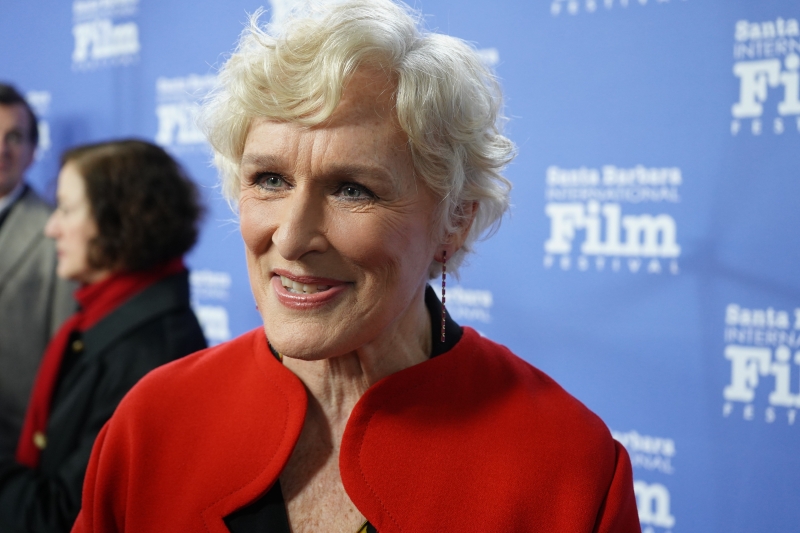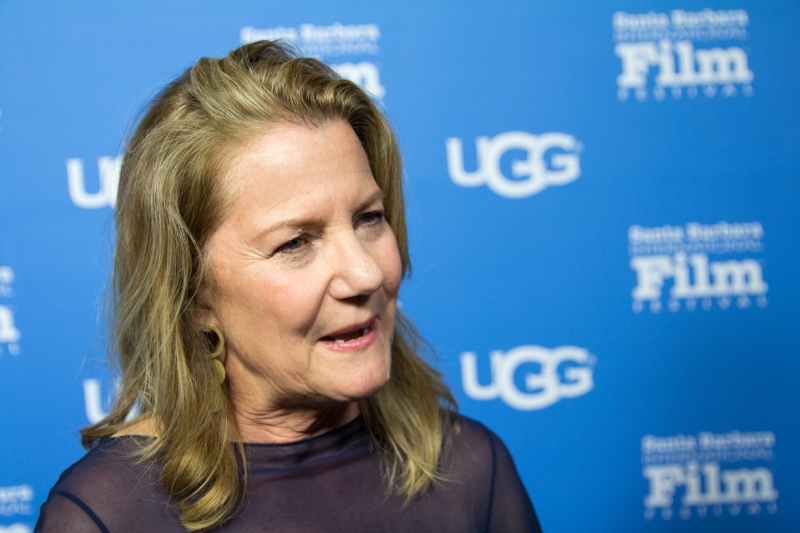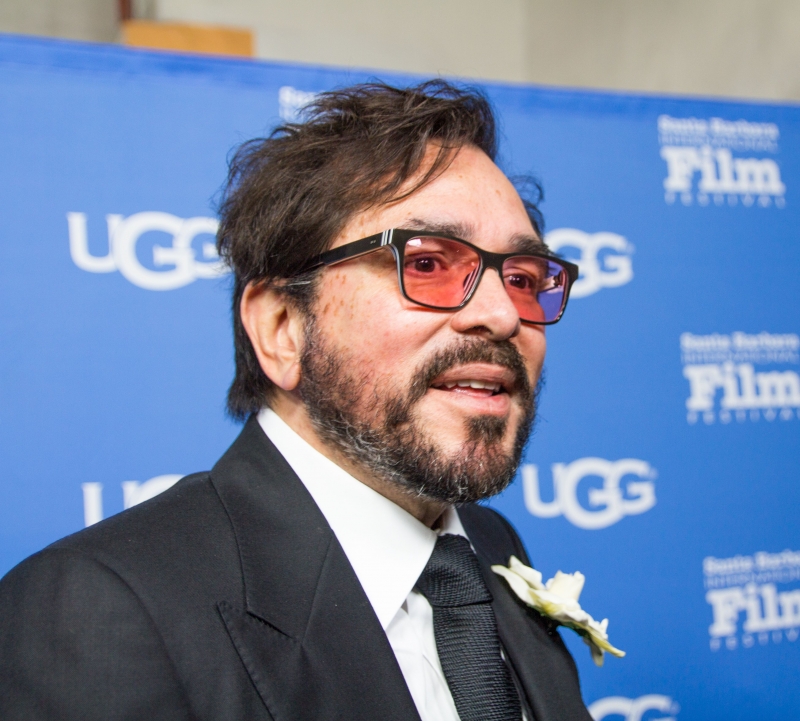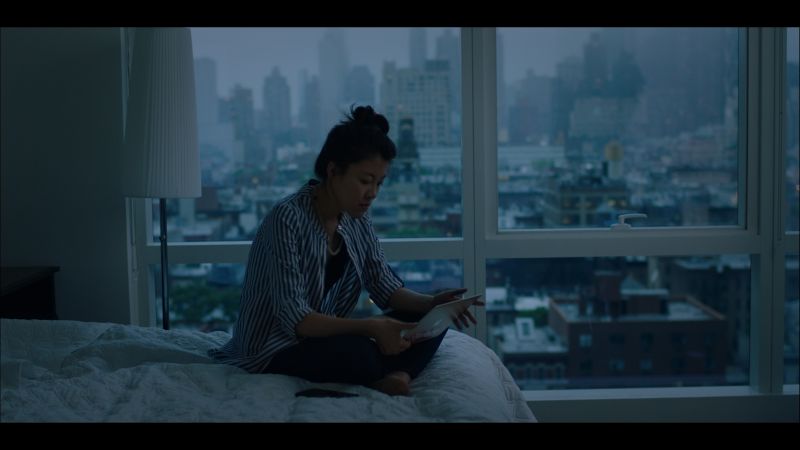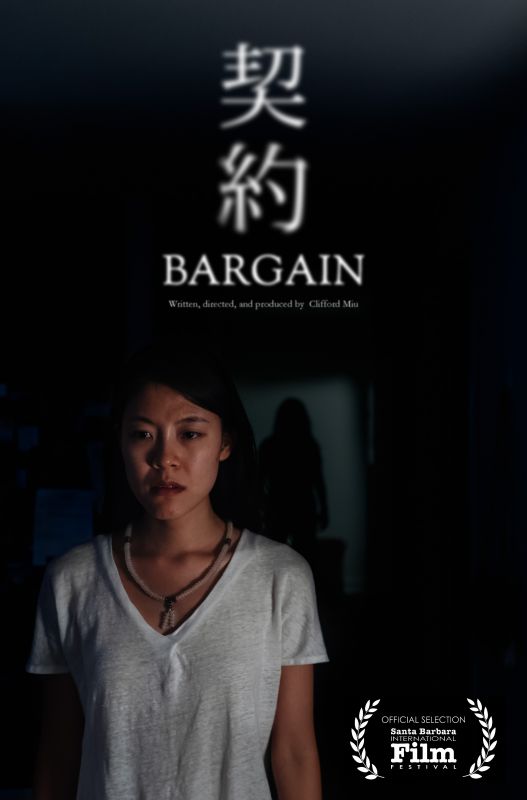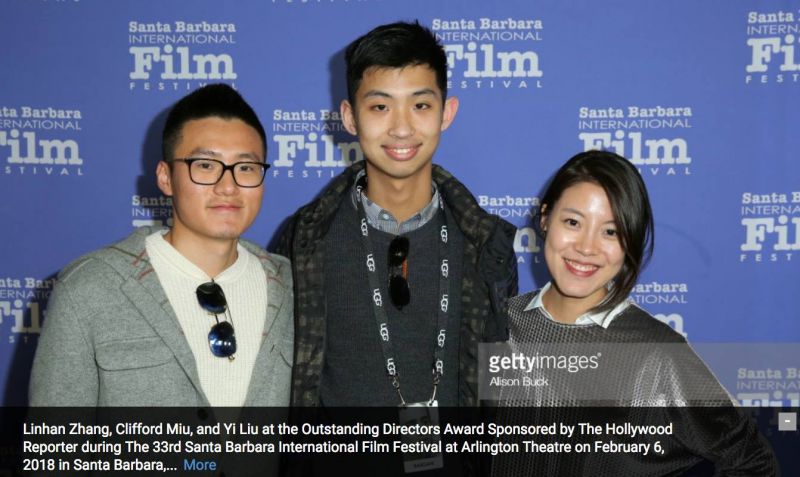|
|
||
|
Pro Tools
FILMFESTIVALS | 24/7 world wide coverageWelcome ! Enjoy the best of both worlds: Film & Festival News, exploring the best of the film festivals community. Launched in 1995, relentlessly connecting films to festivals, documenting and promoting festivals worldwide. Working on an upgrade soon. For collaboration, editorial contributions, or publicity, please send us an email here. User login |
A MIGHTY FINE interview with cast of 'MIGHTY FINE' (2011)!
photo still from MIGHTY FINE (2011). Andie MacDowell and Chazz Palminteri
A few weeks ago during the 27th Santa Barbara International Film Festival (SBIFF) I had the pleasure of sitting with the cast from Debbie Goodstein’s film MIGHTY FINE (2011) where the film held its North American premier. What started as an interview turned into a fascinating discussion about rage from the microcosm of American domestic life to the macrocosm of rage in the world at large. Here is my conversation with director Debbie Goodstein, Chazz Palminteri, Jodelle Ferland and Rainey Qualley.
ME: When did you know you had to tell this story and what inspired you? DEBBIE: It’s largely autobiographical. There have been changes made and its somewhat fictionalized but it was my story. I think what I wanted to do was focus on male rage. The father has anger issues and I think there’s sort of a conspiracy of silence on the subject of male domestic rage which isn’t physical but emotional kind of rage that can have lasting and pervasive effects on a family and that’s what I wanted to shed light on in this film. And as opposed to physical rage where upper middle class and middle class families tend to draw the line at that, but there isn’t enough attention paid to the emotional side and as a mother of two boys I think it’s important that we recognize this is something that needs attention. ME: Can you tell us a bit about the title, MIGHTY FINE? DEBBIE: Well, the father’s name is Joe Fine and he’s a very strong character. And in some ways I think the daughters really look up to him. He’s both lovable and scary at the same time and there’s a might there that they really look up to. But one of the films that inspired me was THE GREAT SANTINI (1979) and it’s a similar title about a very complex character also. ME: The film has nostalgia for New Orleans taking place in the 70’s. Why did you pick NOLA to set this story? Is your personal story connected to New Orleans? DEBBIE: Well, we chose New Orleans for a couple of reasons. One, I really wanted to play up the fish out of water experience of a family that’s moving into greater isolation so I think that the isolation of it really plays up what’s going on between the family members. And New Orleans is such a beautiful city and it’s got a haunted quality, which we all know. So, I thought that would be something we could exploit. And beyond that, they had great tax incentives so used that as well. ME: And you guys filmed all on location in New Orleans. How was that? JODELLE: That was amazing. I’ve been to Louisiana before but I’d never been to New Orleans so that was really amazing. There was a lot of history there and it’s very different from where I live. So, it’s neat when I get to travel for filming. I get to see places that are completely opposite to what I’m used to. ME: So, Rainey, what was it like to act with your mom, Andie MacDowell? Was it a challenge or a great experience? Or both? RAINEY: I think it was really a great experience. She obviously has a lot of experience so she was able to help me when I needed it but she was able to step back when I needed to figure things out on my own. Everybody, the whole cast was really generous. Chazz has lots of helpful hints that I would’ve never known. And Jodelle is such a pro. So I think everybody helped come together and make it turn out well. ME: Do you want to speak a bit about your characters? I mean, I know it’s about the father’s rage, but what about the rage of the daughters and within the family? RAINEY: I think my character is the one that isn’t afraid to stand up to her dad. And a lot of times while watching the movie she seems sometimes a little bit maybe over the top and mean towards her dad. You get that she hates it there. I guess she’s used to the torment so she’s the only one in the family who really gets to say how she feels. ME: What about your character Jodelle? JODELLE: Yeah, my character is Natalie. She’s always trying to look on the bright side. Also, she uses poetry to try to deal with things. So she’s always writing to express her feelings and make things better for herself. Usually, she takes her parents side and is more like her mom. And then Maddie’s like the typical teenager who’s just not gonna let things slide and not going to forgive her father all the time because she knows that nothing’s going to stop unless something is done about it. ME: Chazz, can you tell us about playing Joe Fine and how close, or distant, you felt to the character? CHAZZ: Well, he’s a character that has this built in rage, you know. The thing I always said while doing this movie is that my father was totally opposite. If you remember the movie, A BRONX TALE (1993), when I wrote that. My father was a very loving wonderful father who was never upset, never raised his voice ever. And my mother too, so I grew up with really no rage at all but I grew up with people who had that rage. I saw men who had that rage, friends of mine, and their fathers. So I knew what that was and I found it very interesting as an actor. But he’s also a very loving father, and that’s what made it interesting. He really loved his kids and he wanted to do so much for them and so much for his wife but he had this inner rage that people do have. And I found it so interesting because it was a paradox. One minute he was a loving father and the next minute he just couldn’t control himself. I mean, it’s a sickness. ME: Do you think it’s something in the collective psyche of the society that’s breeding that repressed rage? CHAZZ: Well, I think that rage is always there. Now they call it bi-polar but there were different words for back then. Is it bi-polar or just a person who has anxiety and rages? Mental issues are occurring all over the place. But the great thing about what Debbie is saying is that we hide it, we don’t talk about it. The wife always excuses him saying ‘Oh nothing’s wrong, it’s fine, forgive him…’ you know, but he needs help. You know whether that be mental or physical. DEBBIE: I think financial uncertainty is also an issue and with people who are prone or inclined to instability, that can really trigger them. So, I do think there were external forces that exacerbated it basically. ME: I think this is a great topic to what is going on around the world right now. CHAZZ: Well, look at the Middle East. ME: Exactly. We can ask ourselves is this an individual problem or on a greater scale a very widespread collective one right now where on the whole people are needing to deal with a lot of repressed with rage. CHAZZ: If you look what’s happening in Syria, in Egypt in all these countries where all these people are rising up and saying ‘Hey, that’s it. No more! We’re done!’ And now the reason why we haven’t had it here is because we have it so good here but you can see it over here now. Where we’re starting to say, ‘Hey, wait a minute’. I mean, congressmen vote in their own raises, they’re forcing us to take all this medical insurance but they’re not taking it. Well, wait a minute. You know, they want to tax social security. It’s going to take longer to build it up. But I can see 50-60 years from now this country will be like in the Middle East where we just say, ‘That’s it, that’s enough, we’re done!’ DEBBIE: And for me it’s a cautionary tale on a domestic level. When you’re feeling that kind of frustration and the whole world is, make sure you don’t take it out on the kids, you know. ME: I know. And there is a lot of rage out there right now. I mean, I live overseas in Europe and I work a lot in the Middle East so I see it. People want change. DEBBIE: But, why do you think there’s this universal anger? Is it financial? ME: I would say it’s when the powers that be take control, the people either let themselves be controlled or fight back. And with the case of the Middle East now with social media it’s harder to control people so people are fighting back. CHAZZ: I spent six months in Saudi Arabia. It was very interesting. I was with a comedy group. Very interesting experience. ME: Wow. That must’ve been something. But yeah, there is a growing frustration around the world. That’s for sure. CHAZZ: My new play is called HUMAN. And I just think it’s about this problem, that we’ve forgotten how to be human. We’ve forgotten how to touch and feel. We’re on cellphones now, and we break up with each other. ‘I don’t want to see you anymore. I want a divorce.’ Nobody talks to each other. That’s right from my play… ‘We don’t touch, we don’t communicate.’ Kids grow up texting each other. They don’t even speak to each other. ME: Or sometimes there’s too much speaking and not enough silence and sharing. CHAZZ: Nothing. Zero. And what happens is you become depersonalized and you have kids killing kids in school. DEBBIE: And yet those same vehicles of communication are allowing revolutions to take place, in the Middle East, as you said. ME: Yeah, the good and the bad. With religion, for example, you have the good sides and the bad. There is the sacred side and the profane. CHAZZ: More people have died and more wars have been over religion than anything else. ME: And it continues. CHAZZ: And it continues. The thing about the movie, is it just deals with a subject matter that people don’t talk about. And that’s what Debbie captured. She raises an issue that people need to discuss. ME: Well, look where the discussion led us. It got us talking about the whole world and I’m sure we could be here for hours talking. CHAZZ: Exactly. When you look at a movie like this and you have this issue, it makes you think. That’s the good thing about MIGHTY FINE. Certain movies are like Chinese food. You know, you sit down to eat and an hour later you’re hungry again. But other movies you see them and you think about them. You think about them for days. Remember great movies you saw you just thought about for days? You can’t get it out of your mind? And that’s what a good movie does, you know? And that’s what MIGHTY FINE does. It makes you think about this. What happened to the father? What happened to these people? I wonder if the father is okay now? I wonder if he’s getting better. It makes you think about that. That’s the essence of what art is, it’s to make you see yourself. ME: And this is an indie film. Why do you suppose more and more actors are turning to more indie films? Because there is more room for artistic expression? CHAZZ: The studios wont make a movie like this. They just wont do it. Why? Their answer is… Well, I’ve written scripts and given them to studios where I’ve made movies and I’ve gotten the answer back, ‘Ah, it’s great. Love the script! But can’t make it!’ I ask ‘Why?’ They say, ‘It’s too good!’ I ask, ‘It’s too good? What do you mean?’ ‘No, it’s for a certain audience.’ The numbers aren’t big enough. They’d rather spend $100million, get Tom Cruise to do MISSION IMPOSSIBLE so they can make $200-300million, period. ME: And continue to dope the masses. CHAZZ: Exactly. The reason why they do this- and nothing against them- but it’s because they just want to keep their jobs. That is all they’re after. Because they can’t get fired for saying ‘no’. Bit they can get fired for saying ‘yes’. If they say ‘yes’ to you and they make that movie and that movie bombs, you’re fired. So, they don’t want to take the chance. Now if they make MISSION IMPOSSIBLE and that doesn’t work, then. DEBBIE: But I’m hopeful as the baby boomers age, I think they’ll be wanting more rich material and they’re movie goers. So, it’s a different demographic and it’s intelligent. They’re going to have demands. ME: Well, there’s a few good movies going to the Oscars this year. CHAZZ: And there’s a few heavyweights that are trying to make good films like George Clooney, Brad Pitt. ME: Angelina Jolie. CHAZZ: Yeah, and if Angelina wants to make a movie, she’ll get it done. If George wants to, he’ll get it done. Thank god for people like that who are getting it done. So, that’s the hope we have. ME: Are there any special events that took place on set that you want to share before we wrap up? RAINEY: Well, I met Richard, my boyfriend. That was pretty big in my life. DEBBIE: It was pretty big in mine too. I decided I wasn’t just a filmmaker but a matchmaker too. CHAZZ: That’s sweet. Yes, she met a guy in the movie she was supposed to fall in love with and they really did fall in love! Well, they’re young and they fell in love. When you get older and you do movies with women… I’m married for twenty years. So, when you’re with a woman on set and you’re kissing. You know, your mind can do crazy things. You know it’s your job but you’re away from home and it’s like a time capsule. So you have to be careful of that. You know, it’s like anything else so you have to be careful. ME: And filming on location was smooth? You had fun? DEBBIE: We had challenges. The weather was bad, as we were filming during hurricane season. We had mold in our main location. But it was like a family so it was supportive all the way through, and not even a dysfunctional family. This one was fully functional. CHAZZ: Yeah, this was important. On an independent movie you all have to work together, otherwise it’s toast. DEBBIE: We only had 16 ½ days shoot so it wasn’t long. But we had the rain and the mold… RAINEY: I remember the last day we worked for like all through the night and we had to stay in the neighbor’s living room because our house had mold in it. So we were trying to stay awake. DEBBIE: I had to do a lot of rewriting of the script indoors and outdoors in crazy weather but as Chazz said, everybody banded together and it was a very supportive environment. ME: And how did you guys find each other? DEBBIE: I knew I wanted Chazz and I got him the script and he liked it. And he was on board helping me from the beginning of the process. And Andie came on board early on. She liked the script. Then my casting agent saw Andie out one night with Rainey and we were still looking for the daughter so she texted me and said, ‘Andie has a beautiful daughter and I think she’s an actress so we have to audition her’. And with Jodelle we had a skype audition and I immediately liked her. JODELLE: I’ve gotten almost every role I’ve auditioned for over skype. ME: Ha! Awesome! Well, it’s really been a pleasure interviewing you guys.
Written by Vanessa McMahon, February 29th, 2012
photo by Vanessa McMahon: (left to right) Debbie Goodstein, Chazz Palminteri, Jodelle Ferland and Rainey Qualley
Chazz Palminteri at SBIFF 2012; photo by Benjamin Schwartz 01.03.2012 | Santa Barbara's blog Cat. : A House on a Street in a Town I'm From A MIGHTY FINE interview with cast of 'MIGHTY FINE' (2011)! actor actress Angelina Jolie Benjamin Schwartz Brad Pitt Chazz Palminteri Debbie Goodstein Director Egypt Entertainment Entertainment Europe food George Clooney George Clooney, Brad Pitt Jodelle Ferland Joe Fine Louisiana Middle East New Orleans Next Magazine Person Career Person Communication premier Quotation Rainey Qualley Saudi Arabia Say It Social Issues Social Issues Syria Technology Technology the 27th Santa Barbara International Film Festival the Oscars Tom Cruise Vanessa McMahon You Got to Move FILM
|
LinksThe Bulletin Board > The Bulletin Board Blog Following News Interview with IFTA Chairman (AFM)
Interview with Cannes Marche du Film Director
Filmfestivals.com dailies live coverage from > Live from India
Useful links for the indies: > Big files transfer
+ SUBSCRIBE to the weekly Newsletter Deals+ Special offers and discounts from filmfestivals.com Selected fun offers
> Bonus Casino
User imagesAbout Santa Barbara The Santa Barbara International Film Festival has star wattage and a wealth of premieres in a Mediterrean-style city by the sea.
Blogging here with dailies: View my profile Send me a message The EditorUser contributions |



















